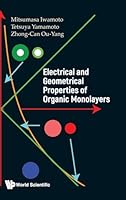
Solid-State Sensors
- Length: 448 pages
- Edition: 1
- Language: English
- Publisher: Wiley-IEEE Press
- Publication Date: 2023-10-24
- ISBN-10: 1119473047
- ISBN-13: 9781119473046
Solid-State Sensors
A thorough and up-to-date introduction to solid-state sensors, materials, fabrication processes, and applications
Solid-State Sensors provides a comprehensive introduction to the field, covering fundamental principles, underlying theories, sensor materials, fabrication technologies, current and possible future applications, and more. Presented in a clear and accessible format, this reader-friendly textbook describes the fundamentals and classification of all major types of solid-state sensors, including piezoresistive, capacitive, thermometric, optical bio-chemical, magnetic, and acoustic-based sensors.
Throughout the text, the authors offer insight into how different solid-state methods complement each other as well as their respective advantages and disadvantages in relation to specific devices and a variety of state-of-the-art applications. Detailed yet concise chapters include numerous visual illustrations and comparative tables of different subtypes of sensors for a given application.
With in-depth discussion of recent developments, current research, and key challenges in the field of solid-state sensors, this volume
- Describes solid-state sensing parameters and their importance in sensor characterization
- Explores possible future applications and breakthroughs in associated fields of research
- Covers the fundamental principles and relevant equations of sensing phenomena
- Discusses promising smart materials that have the potential for sensing applications
- Includes an overview of the history, classification, and terminology of sensors
With well-balanced coverage of the fundamentals of sensor design, current and emerging applications, and the most recent research developments in the field, Solid-State Sensors is an excellent textbook for advanced students and professionals in disciplines such as Electrical and Electronics Engineering, Physics, Chemistry, and Biomedical Engineering.







